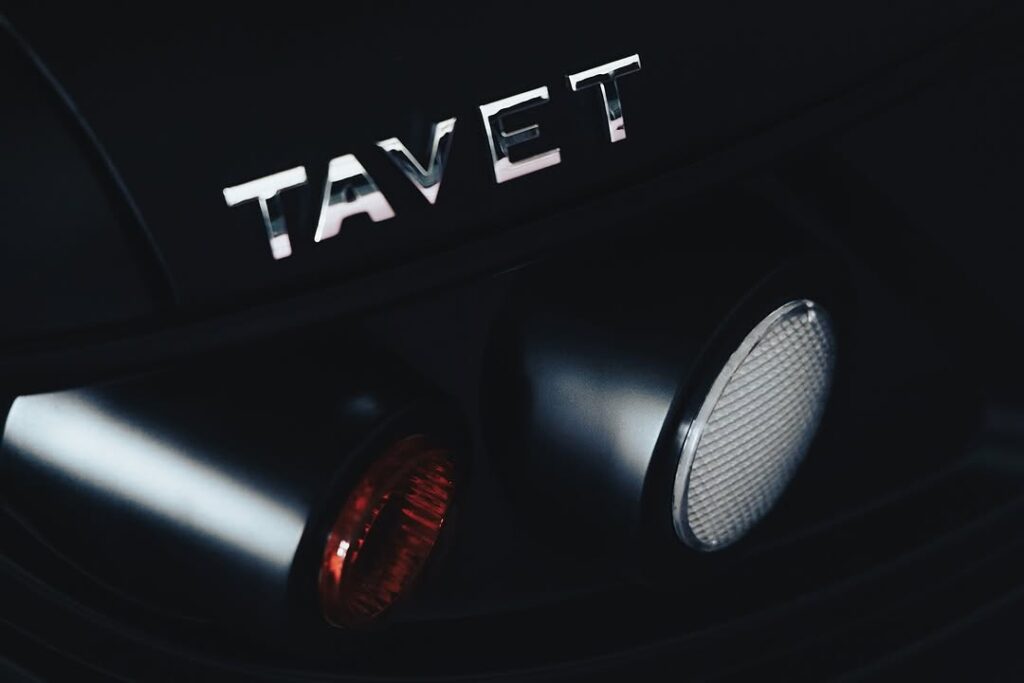Nord Motion Ignites Nigeria’s EV Revolution: Tavet Subsidiary Set to Electrify Roads with Affordable, Homegrown Models

In a electrifying move that’s sending shockwaves through Africa’s automotive landscape, Nord Motion, the trailblazing Nigerian automobile corporation, has unveiled Tavet—a bold new subsidiary poised to spearhead the nation’s charge into electric mobility. Announced just five days ago on October 23, Tavet isn’t merely a brand refresh; it’s a comprehensive ecosystem engineered to assemble, manufacture, market, and service electric vehicles (EVs) tailored for Nigeria’s rugged realities and ambitious dreams. With the first-generation models slated for imminent launch, this initiative promises to slash fossil fuel dependency, ignite local innovation, and position Nigeria as the continent’s EV vanguard.
The Spark: A Vision Rooted in Nigerian Ingenuity
At the heart of Tavet’s mission is a seamless fusion of cutting-edge sustainable tech and homegrown engineering prowess. Designed explicitly for Nigerian roads—think pothole-proof durability meets whisper-quiet efficiency—these EVs are more than vehicles; they’re a manifesto for self-reliance. Priced accessibly at ₦16 million for entry-level models and ₦32 million for premium variants, Tavet democratizes green transport, making it feasible for urban hustlers, family fleets, and eco-conscious execs alike.
“Tavet is not just another product line—it’s a complete ecosystem designed to redefine innovation, performance, and customer experience in the Nigerian automotive space,” declared Oluwatobi Ajayi, CEO of Nord Motion, in the launch statement. The subsidiary’s blueprint extends beyond four wheels: It encompasses a nationwide network of charging stations, battery health programs, and after-sales hubs, all intertwined with renewable energy tie-ups to ensure seamless uptime. From Lagos traffic snarls to Abuja’s bustling boulevards, Tavet envisions a mobility matrix where every mile driven powers progress.
This launch builds on Nord Motion’s storied legacy of “truly Nigerian branded automobiles,” including hits like the Nord A9 and A7 sedans. But Tavet catapults the company into the global green shift, aligning with President Tinubu’s blueprint for industrial renaissance and the African Union’s Agenda 2063 for sustainable industrialization. By localizing assembly and leveraging Nigeria’s burgeoning lithium reserves, Tavet could spawn thousands of jobs in manufacturing, R&D, and supply chains— a direct antidote to the sector’s import-heavy blues.
Why Now? Nigeria’s Perfect Storm for EV Adoption
Timing couldn’t be sharper. With Nigeria’s vehicle fleet aging amid soaring fuel costs (petrol now north of ₦700/liter) and climate pledges mounting post-COP29, EVs represent untapped gold. Yet adoption hovers below 1% due to infrastructure gaps and sticker shock. Enter Tavet: Its dual pricing tiers target the middle-class sweet spot, while the ecosystem addresses the “chicken-and-egg” dilemma of chargers and confidence.
Industry watchers are bullish. “We’re entering a new chapter where sustainable technology meets local engineering excellence. Tavet represents our commitment to making Nigeria a hub for electric vehicle development in Africa,” Ajayi added, underscoring the subsidiary’s ripple effects. Projections from the Nigerian Automotive Industry Association suggest Tavet could capture 15% of the nascent EV market within two years, spurring a West African domino effect. Partnerships with renewable giants—hinted at in the rollout—will integrate solar-powered fast-chargers, potentially cutting urban emissions by 20% in pilot cities.
Social media is already ablaze, with #TavetMotion trending on X (formerly Twitter) as netizens hail it a “game-changer for Naija roads.” One Lagos tech entrepreneur tweeted: “Finally, EVs that get the Nigerian hustle—affordable, tough, and charged by our own sun. Nord just lapped the world.” Early buzz positions Tavet as a cultural icon, blending Afrobeats-infused unboxings with eco-warrior narratives to woo Gen Z drivers.
The Road Ahead: Challenges, Chargers, and Continental Conquest
Of course, no revolution rolls without hurdles. Skeptics point to erratic power grids and policy flux, but Nord Motion’s playbook—rooted in its robust after-sales for ICE models—counters with modular battery swaps and off-grid solar kits. Government incentives, like the 2025 EV import waivers, further grease the wheels.
As the first Tavet units hit showrooms “soon” (exact date TBD, with teasers expected next month), eyes turn to scalability. Ajayi envisions exporting to ECOWAS by 2027, transforming Nigeria from oil giant to green mobility exporter. “Tavet represents the next step in our journey to build a fully integrated ecosystem for sustainable mobility, one where innovation, performance, and customer satisfaction converge,” he affirmed.
In a nation where innovation often dances with adversity, Tavet by Nord Motion isn’t just launching vehicles—it’s launching a legacy. Buckle up, Nigeria: The future is electric, and it’s made right here.
